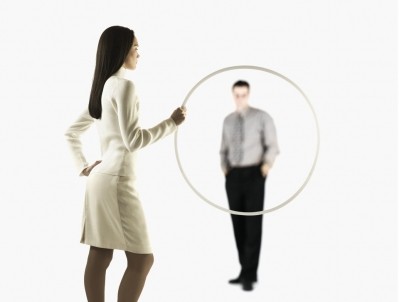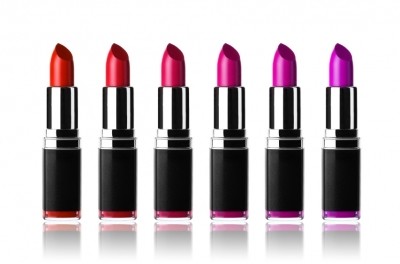China gets stricter on cosmetics ads
increasingly strict enforcement of the country's advertising
standards, according to a consumer goods lawyer.
Although the country's advertising legislation has been in place since 1994 it has not been strictly enforced.
However, this may be about to change, according to Jonathan Selvadoray a lawyer with Cameron Mckenna, who says a growing number of international companies are being picked up for their discrepancies.
"The view that 'this is china and you can do what you want' is no longer the case" Selvadoray told CosmeticsDesign.com.
Although the issue is not directly linked product safety Selvadoray suggested that tightening regulation may be related to the increased attention that the Chinese cosmetics market has received in recent months.
Regulation prohibit exaggeration
The regulations prohibit falsehood and the exaggeration of a product's components, efficacy or function as well as the use of absolute expressions such as 'the latest invention' and 'absolutely no adverse affects'.
In addition, Selvadoray warns that the term 'patented product' should not be used in advertisements until formal certification has been obtained from the Chinese Patent bureau even if a foreign patent has already been obtained.
Penalties for non compliance can include financial fines of up to €20,000, however more importantly a company may be asked to suspend a product's launch until the case has been dealt with by the Chinese authorities.
A ban on a product launch could be significant for the global personal care giants many of whom count China as an increasingly important market.
China is a key market for global players Germany-based Beiersdorf is one of the international players which has identified China as key to the company's growth strategy.
Supported by high sales of Nivea Visage and Nivea for Men, the company's sales in China increased 45.1 per cent last year contributing to a 7.6 per cent rise in the company's turnover to €5.5bn.
Luxury firms in particular are looking to the emerging markets of China, India and Russia to drive sales in an otherwise uncertain economic environment.
According to Estee Lauder group president Patrick Bousquet-Chavanne speaking at a retail congress earlier this year, they are the only markets experiencing a boom at present.
"I believe that it is very likely that for all of us in the branding world
it
[emerging markets] will be a big share of earnings in the coming years," he said.
In its second quarter results publicised early February, Estee Lauder highlighted the Asia Pacific region and China where sales reached $347.4m.



![Indus Valley is working to corner 30% of India's online premium boxed hair colour market. [Indus Valley]](/var/wrbm_gb_food_pharma/storage/images/_aliases/wrbm_tiny/publications/cosmetics/cosmeticsdesign-asia.com/article/2024/07/26/indus-valley-aims-to-secure-30-of-india-s-online-premium-hair-colour-market-with-organic-offerings/17594932-5-eng-GB/Indus-Valley-aims-to-secure-30-of-India-s-online-premium-hair-colour-market-with-organic-offerings.jpg)
![[Getty Images]](/var/wrbm_gb_food_pharma/storage/images/_aliases/wrbm_tiny/publications/cosmetics/cosmeticsdesign-asia.com/china/china-focus-latest-developments-in-china-s-booming-beauty-market25/17606695-1-eng-GB/China-focus-Latest-developments-in-China-s-booming-beauty-market.jpg)
![Kosé has launched makeup brand Visée in Singapore as part of plans to reinforce its position in SEA. [Visée]](/var/wrbm_gb_food_pharma/storage/images/_aliases/wrbm_tiny/publications/cosmetics/cosmeticsdesign-asia.com/headlines/business-financial/visee-singapore-kose-aims-to-enhance-brand-visibility-in-sea-with-new-launch/17587264-1-eng-GB/Visee-Singapore-Kose-aims-to-enhance-brand-visibility-in-SEA-with-new-launch.jpg)
![ble C&C is set on reinforcing its competitiveness in China’s beauty market. [Missha]](/var/wrbm_gb_food_pharma/storage/images/_aliases/wrbm_tiny/publications/cosmetics/cosmeticsdesign-asia.com/headlines/business-financial/able-c-c-aims-to-strengthen-competitiveness-in-china-through-online-expansion-kol-collabs/17591626-1-eng-GB/Able-C-C-aims-to-strengthen-competitiveness-in-China-through-online-expansion-KOL-collabs.jpg)

![LG H&H genetic study says 23 genetic regions affect natural skin tone. [Getty Images]](/var/wrbm_gb_food_pharma/storage/images/_aliases/wrbm_tiny/publications/cosmetics/cosmeticsdesign-asia.com/article/2024/07/23/lg-h-h-discovery-of-genetic-skin-tone-factors-in-east-asians-potentially-key-to-skin-radiance-developments/17587210-1-eng-GB/LG-H-H-discovery-of-genetic-skin-tone-factors-in-East-Asians-potentially-key-to-skin-radiance-developments.jpg)

![DR.CI:LABO expects brand-supplier partnerships gain more public prominence as consumers interest in skin care grows online. [Dr.Ci:Labo]](/var/wrbm_gb_food_pharma/storage/images/_aliases/wrbm_tiny/publications/cosmetics/cosmeticsdesign-asia.com/article/2024/07/22/brand-supplier-partnerships-will-come-to-the-fore-amid-the-online-skin-care-landscape-dr.ci-labo/17576755-1-eng-GB/Brand-supplier-partnerships-will-come-to-the-fore-amid-the-online-skin-care-landscape-DR.CI-LABO.png)